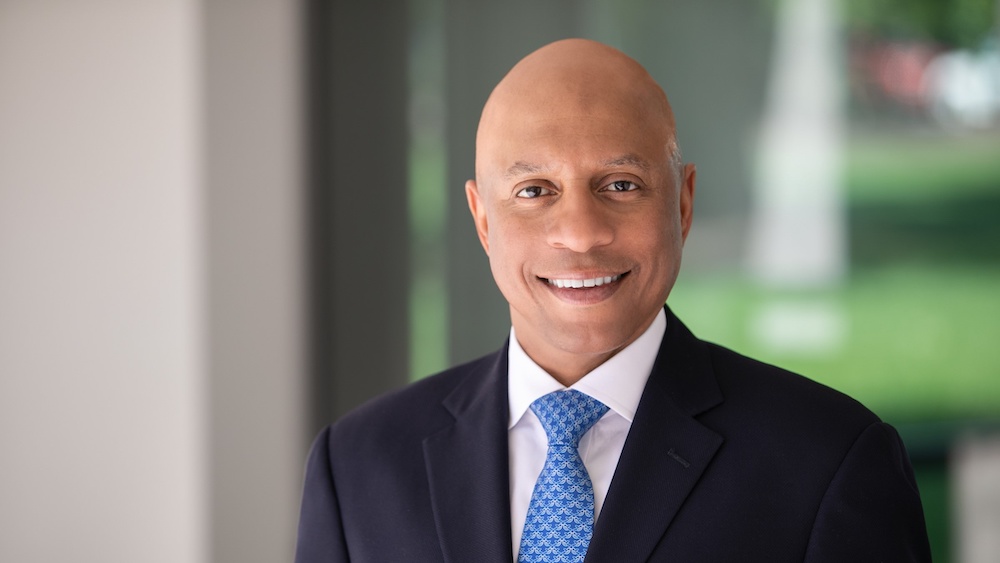If you’re interested in sharing your opinion on any cultural, political or personal topic, create an account here and check out our how-to post to learn more.
____
A few years ago, I, along with the other members of Johnson & Johnson’s African Ancestry Leadership Council employee resource group, shared with our company some troubling statistics: According to the Food & Drug Administration, African Americans represent 12% of the U.S population but only 5% of participants in clinical trials, including those for the worst diseases like cancer and Alzheimer’s. For the Hispanic community, the numbers are even worse. They represent 16% of the American population but only 1% of clinical trials.
Not only is this a moral problem, it’s a data problem too. Research has shown that there may be major differences in the effectiveness of certain medicines among racial and ethnic communities. We wouldn’t be able to fully glean these insights unless we brought those voices to the table. I’m pleased to share that Johnson & Johnson has taken important steps to address this issue, including understanding which communities are most impacted by different diseases, and making better use of social media and local outreach to seek out trial participants where they live.
The lesson here is simple: No matter what your goals are as a company, it’s impossible to achieve them if you’re pushing certain voices to the side.
Diversity & Inclusion (D&I) I has become a popular buzzword at companies large and small, but I believe that it has to be more than that. It should be the very foundation of your company. Our recent You Belong: Diversity & Inclusion Impact Review discusses the culture we’ve worked hard to create at Johnson & Johnson, one where every employee can bring their true, unique selves with them to work. Where every employee around the world is valued and heard.
Creating that culture, especially at a company as large as ours, takes constant, focused effort. Otherwise, we will suffer the consequences. We’ve all seen the news stories of companies that failed to address potential bias, which is why we’ve made unconscious bias training such an important priority. I’m proud to report that we’ve provided this critical training to 95% of our managers and more than 85% of our total employees.
Building a culture of respect at a workplace requires tangible ways to maintain and monitor progress, in order to hold yourself accountable. Under the leadership of our Chief Diversity & Inclusion Officer Wanda Bryant Hope, we’ve implemented surveys and other mechanisms to gauge how effective our efforts really are. I’m proud that an overwhelming majority of our employees believe that our company is a place where diverse perspectives are valued, and supervisors treat their teammates with respect.
The Impact Review explores another idea (revolutionary, I think!) that bringing every voice to the table can actually make a major difference in a company’s bottom line. Studies have shown that companies with inclusive cultures have a much more productive workforce, are twice as likely to meet or exceed financial targets and are a stunning eight times more likely to achieve better business outcomes.
When you’re a consumer-facing business with global reach like we are, diversity becomes even more critical. You can’t bring innovative products to patients and customers unless your employees truly understand their needs.
Customers like those in Muslim countries, who requested a version of our Listerine product that was alcohol-free. Or those in Southeast Asia, who asked for one in green tea, a flavor they were more accustomed to. Or even U.S. environmentalists, who asked for a version with nonsynthetic ingredients. Each of us is part of a unique group with unique needs, and businesses need to listen.
For far too long, businesses have been brushing D&I to the side, embracing it only “as needed.” They considered it a nice-to-have, an afterthought. As we approach a new decade, we must banish this thinking forever. Simply put, D&I is a business imperative. Every organization should have their sights squarely on building and maintaining a culture where employees and customers feel like they belong and are heard. Those that don’t are sure to be left behind.
____
Oray B. Boston Jr. is the President of Global Biosurgery, Ethicon at Johnson & Johnson.

